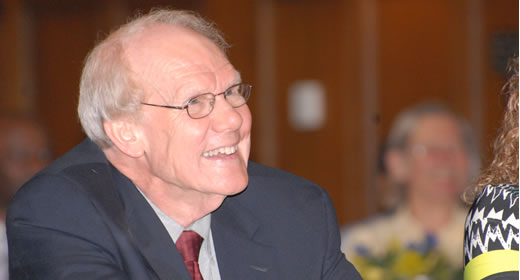
James House believes President Obama's initiatives to improve the socioeconomic situation of disadvantaged groups may do more to improve population health and reduce health care spending than his landmark Affordable Care Act. In his new book, Beyond Obamacare: Life, Death and Social Policy, House, a research professor of epidemiology and the Angus Campbell Distinguished University Professor Emeritus of Survey Research, Public Policy and Sociology at U-M, argues that we are currently on the wrong track to solve the daunting - and paradoxical - problem of burgeoning health care spending but worsening population health. He advocates moving away from a supply-side approach that focuses on improving access to health care to a demand-side strategy that improves the main drivers of people's health - their conditions of life and work.
Over the past four decades, the U.S. has increased its spending on health care to a level 50 to 100 percent more than any other country. Yet over the same decades, life expectancy and infant mortality have worsened, relative to many developed countries and some developing ones as well, House says. That's because "we're not taking into account the role that social determinants and disparities play in driving both levels of population health and health care expenditures." Population health improves more by investing in creating healthful conditions of life and work than by spending more for health care, he says.
For example, "investments in early childhood education, better schools at the elementary and secondary levels, and better access to higher education have all been shown to pay off in terms of health outcomes."
House realizes his idea will be politically challenging. But he thinks the move to raise the minimum wage represents an important beginning. Politicians and corporate leaders "are starting to get the idea that if you pay better wages, you get better workers. If we also get healthier workers, we're saving more." House hopes his book will stimulate discussion about this fundamentally different way of approaching health policy. "It's very complicated and hard to change the health care system, so we need to look at what we can do differently."
- Written by Julie Halpert for Findings, the magazine of the University of Michigan School of Public Health